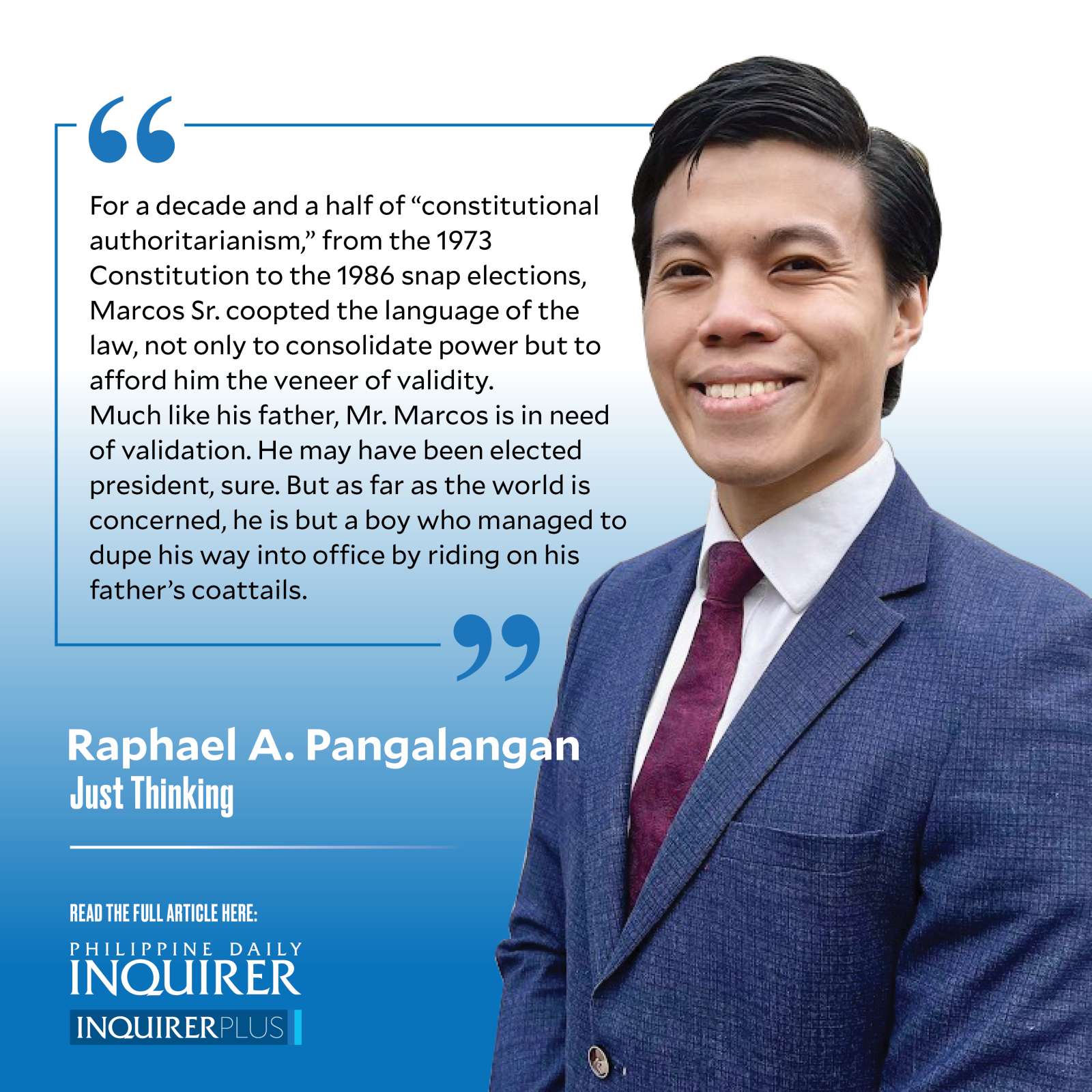The Marcosian choice: liability or legitimacy

The Office of the Prosecutor (OTP) of the International Criminal Court (ICC) recently filed a request to resume its investigation into the situation in the Philippines. The OTP found that the Philippine government failed to substantiate that “it is investigating or has investigated” the crimes against humanity committed in the Dutertian drug war.
Notably, the request was made on June 24, 2022—just six days prior to the conclusion of Rodrigo Duterte’s presidential term. So with President Ferdinand Marcos Jr. now back in Malacañan Palace, advocates have seized the opportunity to revive the call for Philippine cooperation in the ICC probe.
There is a list of reasons why Mr. Marcos should cooperate with the ICC; the normative power of justice is at the top of it, no doubt. But alas, the reality is, that a Kantian invocation of “the right thing to do” doesn’t quite jive with the rhetoric of a self-described Machiavellian. So instead, I don my pragmatist cap and zero in on the Marcosian dilemma.
Mr. Marcos has two choices: On one hand, lies liability and, on the other, legitimacy.
To the first: Mr. Marcos should be aware that by becoming the 17th President of the Philippines, he inherited not only his predecessor’s mantle but his predecessor’s mess. Through the doctrine of command responsibility, even if not a single extrajudicial killing was committed under his watch, still, Mr. Marcos stands to be drawn into the prosecutorial fold.
The doctrine of command responsibility is a mode of criminal liability imposed on superior officers for failing to prevent, repress, or report the unlawful conduct of their subordinates. Notably, the doctrine is rooted in Philippine history. It was first applied in 1945 by an American military commission—then stationed in what is now the premises of the US Embassy along Roxas Boulevard—in the trial of the “Tiger of Malaya.” Gen. Tomoyuki Yamashita was incarcerated in the City of Muntinlupa and ultimately executed in Los Baños, Laguna, for having “failed to discharge his duty as commander” over his subordinates who committed “brutal atrocities and other high crimes” against the US and Filipino peoples.
Seventy-seven years later, command responsibility has developed to bind military and civilian superiors alike. What’s more, in Prosecutor v. Hadžihasanović, the International Criminal Tribunal for the Former Yugoslavia ruled that the doctrine applies even if a superior assumed their command after the subordinate’s crime had taken place. This means that newly elected superiors, such as Mr. Marcos, must investigate and punish criminal conduct, even if the crime was committed before his tenure. The failure to do so would give rise to his omission liability, which is punished, mind you, not only under international law but through Republic Act No. 9851—the Philippine Act on Crimes Against International Humanitarian Law, Genocide, and Other Crimes Against Humanity.
Now, shifting gears to the carrot from the stick: It is also in Mr. Marcos’ interest to cooperate with the ICC, not only to avoid liability but for the purposes of legitimacy.
The dictator, Marcos Sr., himself was well-aware that power may be one thing, but legitimacy is a whole other. Reverence was not enough. What he needed was ratification. Thus, for a decade and a half of “constitutional authoritarianism,” from the 1973 Constitution to the 1986 snap elections, Marcos Sr. coopted the language of the law, not only to consolidate power but to afford him the veneer of validity.
Much like his father, Mr. Marcos needs validation. He may have been elected president, sure. But as far as the world is concerned, he is but a boy who managed to dupe his way into office by riding on his father’s coattails.
If legitimacy mattered to the eponym, what more the namesake? By investigating or cooperating with the ICC probe, Mr. Marcos will have a chance to avoid liability and achieve legitimacy.
But perhaps the ultimate reason lies in neither. Perhaps, it rests in nothing more than sheer, raw power. And for now, that power is shared by two families. But, by cooperating with the ICC, the Marcoses may very well bring that down to one. After all, Machiavelli would quickly say: “A wise ruler ought never to keep faith.”
——————
thinkjustly@gmail.com




















